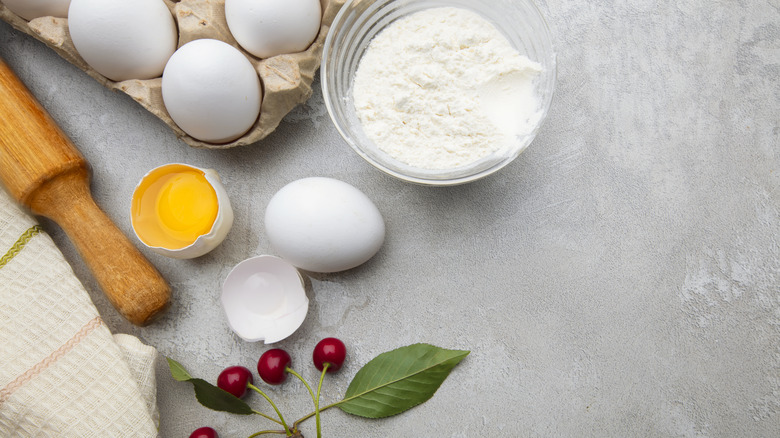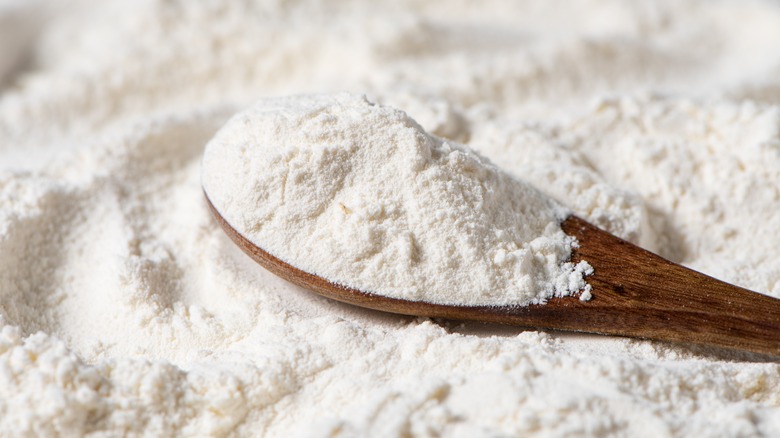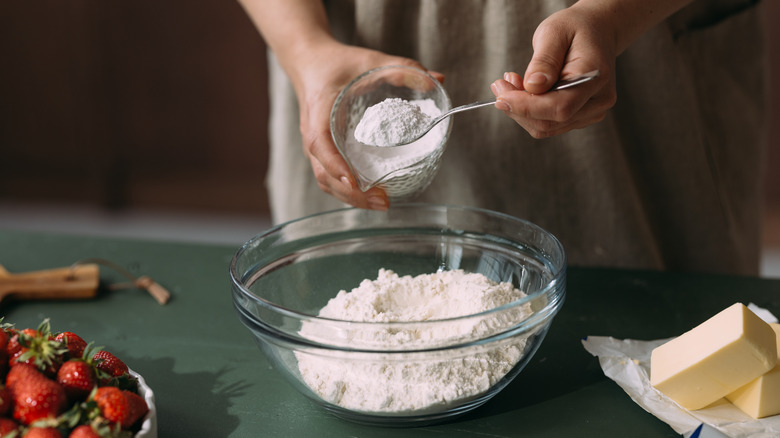Why Cake Flour Might Not Always Be The Best Option In Your Baking
There is an overabundance of advice about baking — especially about cakes — on the internet. Should you use all-purpose flour, pastry flour, or cake flour? Can you make your own flour? It's enough to leave a beginner baker confused. Luckily, we're here to help you answer one pertinent question: When is it necessary to use cake flour?
Sandy Folsom, school director at the Wilton Sweet Studio, says, "You don't always need cake flour[;] it depends on the recipe ... If you use one flour when it calls for another, you could end up with treats that are too crumbly or a cake that sinks in the middle." She adds, "Remember, baking is a science, and you want the right chemical reaction to happen in the oven to yield delicious results."
If your recipe doesn't specify, there's a good chance you can just use all-purpose flour, as it is a versatile pantry staple that contains about 8 to 12% protein. This wheat flour (yes, all-purpose flour is wheat flour with the grain milled out) is perfect for light and airy Chantilly cakes, as well as cookies, yeast donuts, muffins, pies, biscuits, and pastries.
Cake flour gives your bakes a fluffy and soft texture
Undoubtedly, you've seen cake flour on your favorite grocery store shelf. You may have picked up a box, thinking it would be easy to exchange it for good old all-purpose. Not so fast! Sandy Folsom reminds us, "In most recipes, you should not substitute cake flour for all-purpose flour as it will change the texture of your baked goods."
Why would using cake flour instead of all-purpose change your bake? "Cake flour has a lower protein content [6-8%] than all-purpose flour," says Folsom. "It is made with a different type of wheat and will provide a dough that is softer and more pliable."
The extra-fine consistency of cake flour allows it to absorb a large amount of water. This absorbency gives baked goods a fine crumb and a fluffy texture. Your batter will rise higher too — perfect if you're making a lofty, soft cake.
What about DIY cake flour?
What should you do if you run out of cake flour? Should you reach for that handy bag of bread flour instead? The answer is no: Not unless you want to bake up a disaster. Bread flour isn't ideal for cakes because it has more protein than cake flour. Using it in your cake recipe will result in a tough, dense cake that's too chewy.
Instead, try whipping up a batch of homemade cake flour. Sandy Folsom's method is fairly simple. "If you're in a pinch ... you can add a little bit of cornstarch to all-purpose flour to help lower the protein content and mimic cake flour." She suggests removing "two tablespoons of all-purpose flour from each cup and add two tablespoons of cornstarch in."
If you're baking a delicate dessert — like an angel food cake — it's best to stick with store-bought cake flour. Commercially produced flour will give you the superior texture and tenderness you desire.



